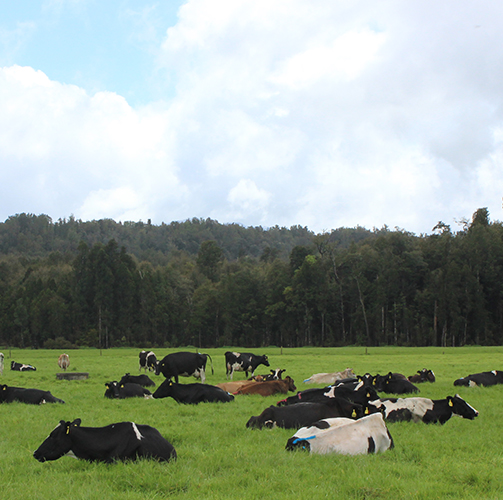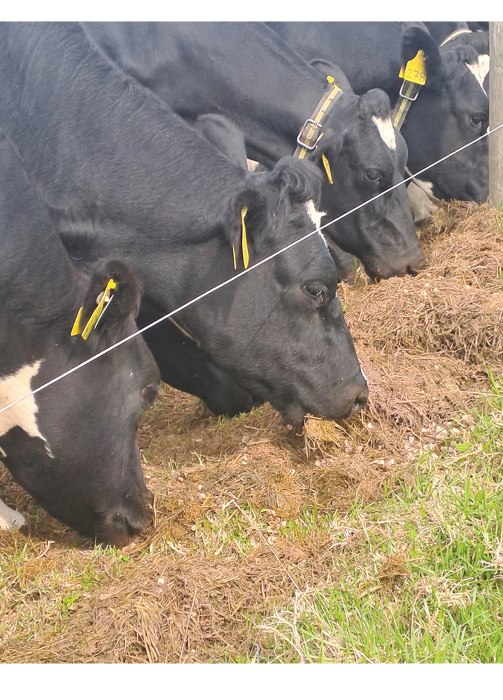

Calcium & Cows
Words by Karen Fraser
Having the right calcium levels is essential for cows, with it having a significant impact on their health and well-being. After giving birth, cows need significantly more calcium for milk production.
If their diet doesn't provide enough, they start using calcium from their bones. This can lead to milk fever—a condition where calcium levels drop too low, affecting their health and milk production. Calcium is also crucial for blood clotting and muscle function. Even without obvious signs, cows might have subclinical milk fever, impacting their well-being and productivity. Ensuring adequate calcium intake, especially during mid and late lactation, is vital for their health and the farm's success.
Below are some Autumn Springer Cows (2-3 weeks before calving) consuming NRM Anionic Precalver Nuts. Fed at 2kg per day for 2-3 weeks before calving, these nuts provide high energy and protein to improve calcium mobilisation and reduce metabolic issues like milk fever post-calving. They also contain essential trace minerals, vitamins, and Bovatec for ketosis. This low DCAD (Dietary Cation Anion Difference) feed helps manage the cow's acid-base balance, impacting calcium metabolism and reducing milk fever risk.
Additionally, it supports colostrum generation and the development of the unborn calf. The NRM Anionic Precalver Nuts are made to order in tonne amounts in either 25kg bags or Bulk loads.



